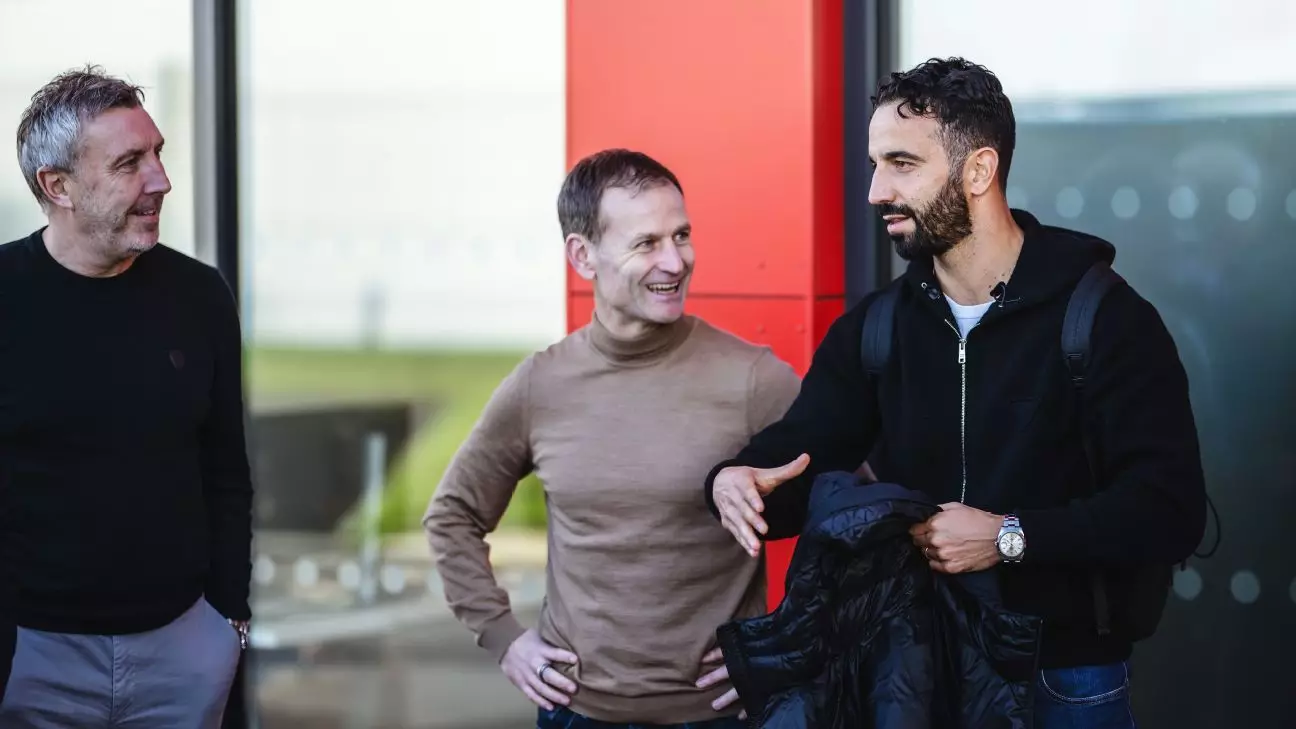Rúben Amorim steps into monumental shoes as he assumes the managerial role at Manchester United, the sixth permanent coach since Sir Alex Ferguson’s retirement in 2013. Following a tumultuous period under David Moyes, Louis van Gaal, José Mourinho, Ole Gunnar Solskjær, and Erik ten Hag, each of whom has faced success and failure, Amorim has the daunting task of resurrecting the club’s former glories. As he embarks on this journey, it is crucial to consider not only the challenges but also the potential transformations that lie ahead for the club.
The previous coaches have left mixed legacies, failing to restore United’s dominance in either the Premier League or the Champions League. Amorim, at just 39, brings fresh energy and optimism, having recently secured two league titles with Sporting CP. Nevertheless, he openly acknowledges the difficulties ahead, yet expresses a resolute commitment to tackle the challenges presented by one of football’s most storied clubs.
Amorim is known for preferring a 3-4-3 formation, a strategy that has proven successful in his past endeavors. While he aims to establish this system at United, the prevailing player profile presents immediate challenges. United’s current squad was predominantly built around a 4-3-3 framework, which may result in inefficiencies for Amorim’s tactical vision. Implementing such a structural revolution will necessitate a period of adaptation for players who are more accustomed to traditional roles.
Central to this formation are the wing-backs, a position that could prove vital yet tricky to fill within the existing squad. With six senior center-backs available, the question becomes how to identify suitable candidates on the flanks. Players like Diogo Dalot, Noussair Mazraoui, and Luke Shaw seem natural fits for the position, but Amorim may also look toward lesser-utilized talents like Alejandro Garnacho and Amad Diallo. The potential adjustment for Garnacho and Amad from conventional wingers to more defensively responsible hybrid full-backs could yield increased tactical flexibility, albeit at the cost of their attacking comforts.
Furthermore, Amorim’s lineup will require a commitment to two creative midfielders positioned behind a central striker, emphasizing midfield dynamism and pressing. This arrangement raises questions about how flexible key attackers like Marcus Rashford can be, especially given his traditional preference for playing from the left. Rashford’s adaptability will be crucial, as Amorim requires a full team effort regarding pressing and defensive responsibilities. The challenge will rest on whether Rashford can sustain this level of commitment that Amorim values so highly.
Scoring Goals: An Ongoing Challenge
Goal scoring has been a consistent thorn in United’s side, and Amorim’s arrival brings heightened scrutiny on this issue. Under Ten Hag, United struggled to find the net with consistency, a shortfall that became a defining characteristic of his tenure and ultimately led to his dismissal. Amorim inherits strikers like Rasmus Højlund and Joshua Zirkzee but needs immediate results in front of goal.
Højlund, though promising, must evolve rapidly from being a developing talent to a reliable goal-scorer if United are to regain competitive status. His current scoring record raises concerns, particularly given the harsh expectations of a club of Manchester United’s stature. Amorim’s past success with strikers, notably his work with Viktor Gyökeres at Sporting, provides some optimism. If he can replicate that success with Højlund, the foundation for recovery may begin to solidify.
Amorim takes the helm amid realistic expectations for the season. With United currently languishing in 13th place, few anticipate instant victories against giants such as Manchester City or Liverpool. However, establishing a fortress at Old Trafford by turning winnable matches into victories can set the tone for a successful tenure. Upcoming fixtures against teams like Everton and Nottingham Forest offer valuable opportunities for building momentum.
Importantly, Amorim must confront the lingering skepticism about the club’s playing identity, a notable critique of Ten Hag’s reign. Fans often found themselves questioning the tactical direction, a situation Amorim must work diligently to alleviate through the establishment of a coherent strategy. Adaptation to the Premier League’s unique challenges will be vital.
Ultimately, Amorim’s approach will be under tight scrutiny as he seeks to balance his tactical philosophy with the available player’s strengths. The road ahead will be steep, filled with learning experiences as he navigates the complexities of his new managerial environment. Successful adaptation could lead to a resurgence of hope at Old Trafford, restoring faith in the club’s storied legacy.

